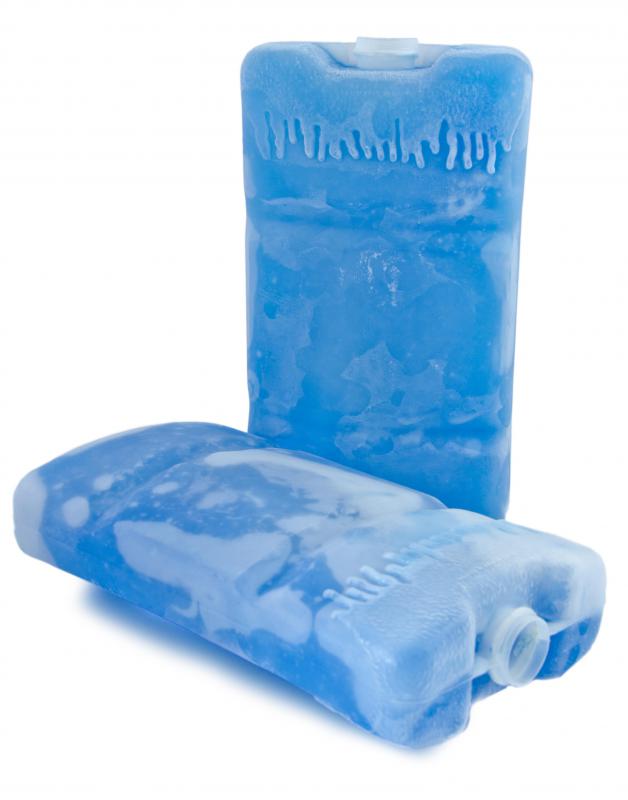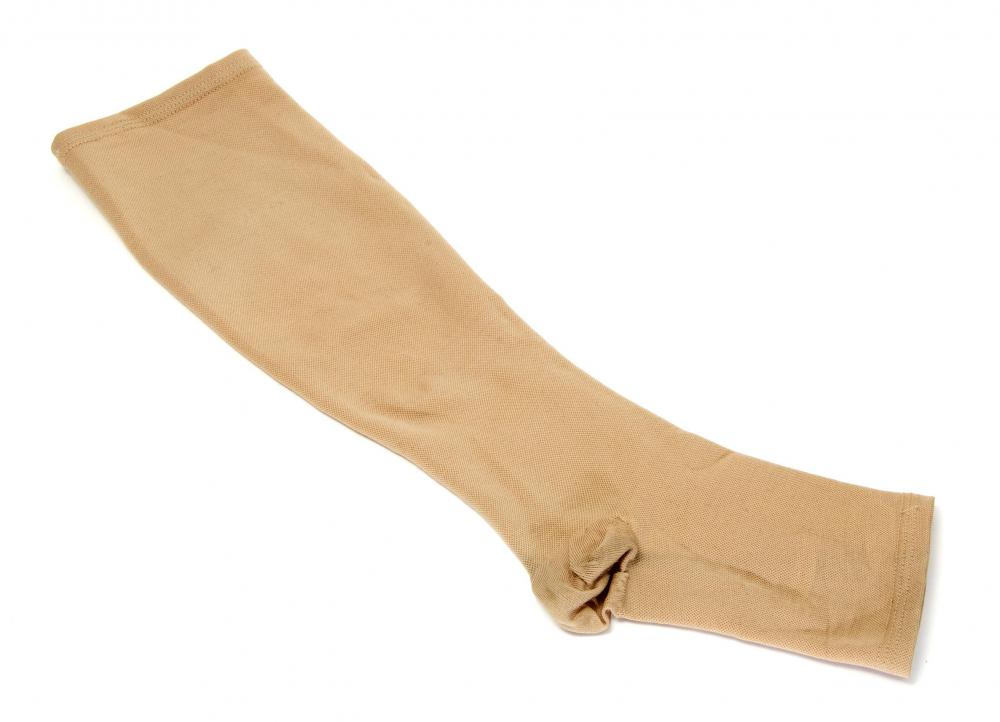At TheHealthBoard, we're committed to delivering accurate, trustworthy information. Our expert-authored content is rigorously fact-checked and sourced from credible authorities. Discover how we uphold the highest standards in providing you with reliable knowledge.
How Do I Manage Inflammation after Surgery?
Some amount of inflammation after surgery is normal and expected, and your doctor should give you some tips for caring for your incision, and reducing swelling. Always follow these tips and ask your doctor if you want to try anything else to make sure it is not dangerous. In general, there are some basic principles for managing post-op inflammation. These principles include getting plenty of rest, applying ice to the area at regular intervals, and leaving on a compression bandage if the doctor supplied one. Taking anti-inflammatory medication can also be a good way to cut down on pain and swelling, though this is not indicated in some cases, so be sure to check with your doctor.
The single most important thing to do to manage inflammation after surgery and begin the healing process is to rest and relax. If possible, elevate the area that has been operated on, which will really help to reduce swelling. Do not try to exercise or do anything strenuous, or lift anything heavy, as these activities can actually increase inflammation and potentially be very dangerous, depending on the type of surgery you had. While you are resting, it is generally recommended to apply ice at regular intervals. The ice should always be wrapped in something, such as a towel, and shouldn't be left on the skin for more than 10 or 15 minutes at a time.

Your surgical wound will probably be covered with a bandage after the operation, but some doctors will apply a compression bandage for areas especially prone to inflammation. Be sure to leave this on as long as the doctor has instructed you to, but do not apply a compression bandage yourself. Even if there is a bandage covering the wound, be sure to check it and make sure it is not too red or leaking pus, which indicates infection. Extreme swelling can also indicate an infection.

Certain medications can make a big difference in postoperative inflammation and in managing any post-surgical pain. It is important to take them as prescribed, or as indicated on the bottle. In some cases, such as surgeries in which bones are fused, anti-inflammatories are actually not recommended because they can affect the healing process. This is another reason it's always important to talk to your doctor about any medications. In most cases, inflammation after surgery should begin to resolve within a few days.
AS FEATURED ON:
AS FEATURED ON:














Discussion Comments
My husband had a torn Achilles operation. It was in January and he is still suffering with pain and swelling. It looks like he has inflammation in his foot. What can we do or use?
I am nine months (yeah, I said months!) out from lap. surgery. They removed my appendix, right ovary and scar tissue. I have numbness and pain on the front of my thigh half way to my knee. I have cut "notches" in my panties because the right leg area hurts in there. In the vaginal area, if I sit too long, it gets very painful, and on the pubis bone i have what feels like a bruise. Any ideas?
@fify-- I've just been resting and using anti-inflammatory topical cream after my knee surgery and the inflammation is going down. The cream is great, it's an anti-inflammatory and pain reliever in one. Elevating my leg also helps.
It's funny that you mentioned food because my doctor told me to eat pineapples and apples to help the swelling go down faster.
@alisha-- For mild inflammation, especially after bowel surgery, there are foods that have anti-inflammatory properties. Salmon, broccoli and blueberries are anti-inflammatory. I ate plenty of these after my bowel surgery. They were recommended to me by a friend who has Crohn's disease.
Turmeric is also an anti-inflammatory. It's a yellow spice and I try to include turmeric in most of what I cook to keep inflammation down in my intestines.
Ice and pure aloe vera gel is great for inflammation around the incision site. I took anti-inflammatory medications for a few days after my surgery but my inflammation was mild and the medications were giving me upset stomach. So I switched to ice and aloe vera gel.
Post your comments